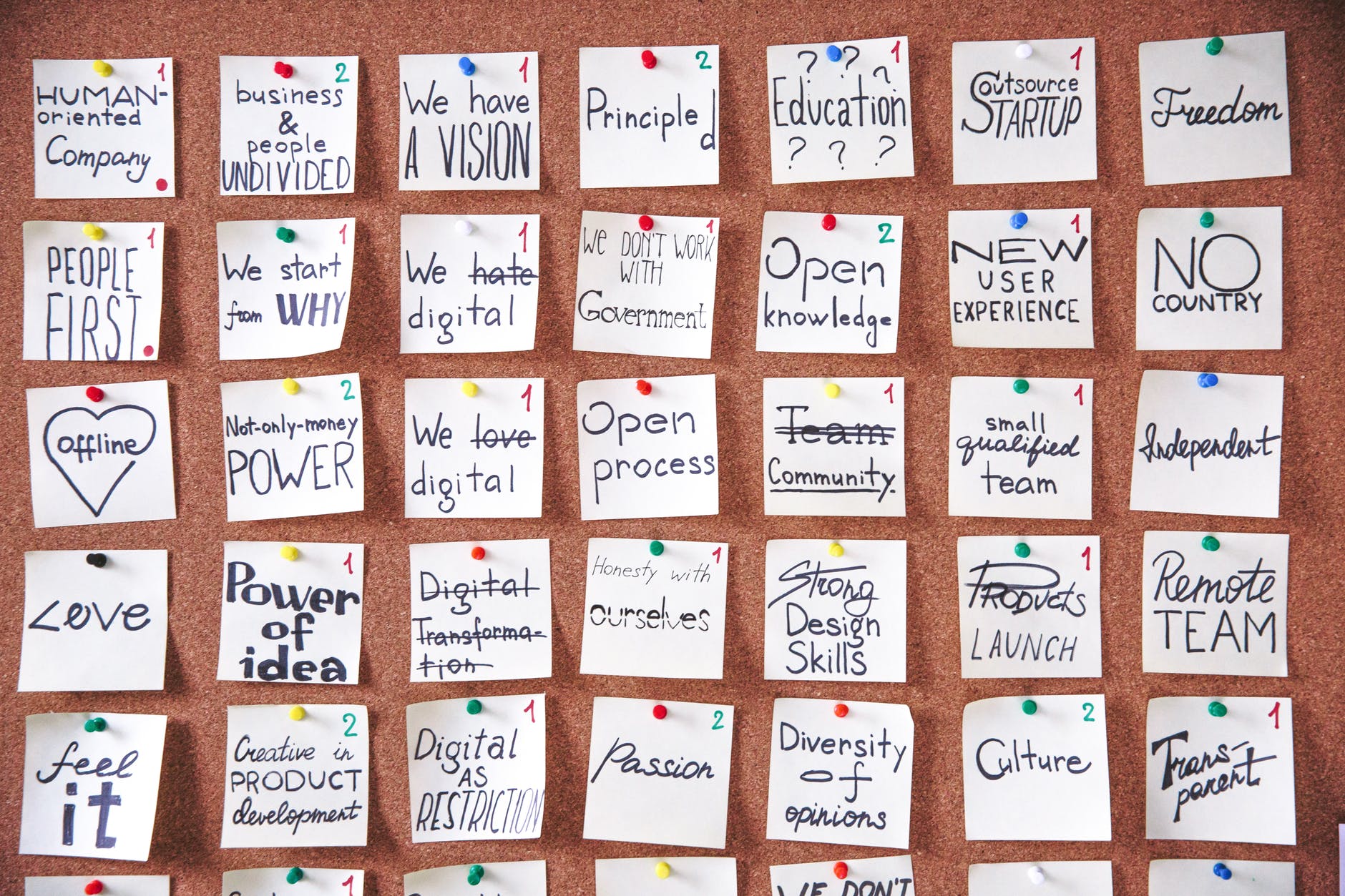
Photo by Polina Zimmerman on <a href="https://www.pexels.com/photo/sticky-notes-on-board-3782235/" rel="nofollow">Pexels.com</a>
Everyone wants to live a happier and more fulfilling life, but the challenging task is often to work out how to get there. While plenty of people set renewed intentions and resolutions to try to do better at regular intervals, many of us soon find that we lose motivation or awareness of how to get there and give up along the way. This can often leave people in a difficult loop, circling between coming up with fresh objectives and goals, and failing to make any progress with them.
If you are serious about making some positive changes in your life, whether they are personal or professional, then read on for some goals you should keep in mind.
Work out SMART goals
SMART goals are essential when it comes to succeeding in a business venture, but the premise is just as applicable when it comes to making changes in your life. SMART can translate to specific, measurable, attainable, relevant, and time-bound, and this is an excellent framework for deciding if something is a practical and realistic objective or not. You can apply this thought process to any goal in your personal life and career, from health objectives to professional aspirations.
To begin with, you should come up with specific and defined goals, which can be described succinctly and clearly to a third person. You may want to try to test this by summarizing your goal in a few lines of writing. If you are struggling to articulate what it is you want to achieve, or if it feels too vague and ambiguous, then it may be necessary to review and start again with a little more focus and attention this time.
Once you have a specific goal in mind, the next step is to make sure that it is measurable. This can vary in many different ways, depending on the goal itself. You may have something that you would like to achieve in a fixed period, such as completing a study course, like this one here. You may want to reach a certain income level, or be able to purchase dream items, such as a home of your own, or a car. Whatever your goals are, having something discreet and measurable in mind will help you stay focused and work out a sense of progress along the way.
Next, your goals should be attainable. This can mean many things to different people. For some, this might mean ensuring that your goals are kept down to earth and achievable in a realistic setting. You may want to focus on what you can succeed in, with the resources that you have. This might be a beneficial approach if you are looking at doing something where you do not have much influence over external factors. However, for others, keeping things attainable can be a little more flexible. You may want to consider what can be achieved, with extra steps along the way, such as studying for extra qualifications to help you get to where you want to be.
Finally, keeping your goals relevant and timed means that you have a specific framework in mind around each objective. This is useful to help you stay motivated, focused and driven towards what you want to achieve. By keeping a timed framework in mind, you can create a timeline of what kind of tasks might be necessary to complete along the way. Not only does this help you to stay focused, but it can also be a useful way of breaking down seemingly insurmountable tasks into more manageable sections.
Make a clear, physical plan
Having a written plan is a powerful way of working towards your goals. It can be tempting to keep everything in your mind without writing down a single line, but there are many shortcomings to this. One of the biggest and most obvious problems that can arise is that it is very easy to lose focus, if you cannot keep track of what you were trying to do.
You may want to keep an overall summary of your goals to help you to stay focused and motivated throughout the process of working on yourself. This may be something simple, like a visual mood board that you can keep in a prominent place to remind you of what you hope to achieve, or even a simple list on your phone or laptop, where you can recount what you would like to work towards.
As well as having a clear summary of your planned goals, you should also make sure that you break down the steps that you need to work through to get there. This is especially helpful if you are looking ahead towards a long-term objective that may take a lot of time to fulfil. It can often be demoralizing at times, especially when you are likely to meet hurdles and obstacles along the way, but by breaking down each step on your journey, you can remind yourself of what you have achieved so far, and what is still to come ahead.
Lastly, do not be afraid to review your written plan, or make changes along the way. One helpful point about having a clearly defined plan is that you have a useful overview of your thought process at each stage. If you find that your objectives have changed along the way, or that your planned steps are not working out as you anticipated, you are not rigidly tied to any particular structure. Instead, be open to the prospect of making new changes as you go.
Celebrate your achievements along the way
Finally, an important part of making sure that you succeed in your goals in life is allowing yourself time to celebrate what you have achieved, at every step. It can be tempting to try to focus on what is ahead and lose track of what you have managed to do already. However, by failing to fully appreciate what you have already done well at, you may underestimate your capabilities, and lose confidence in yourself.
Making space to celebrate your successes means that you will be able to reflect on what you have done well, and what has worked out for you. Not only is this a great confidence booster, but it can also be a useful lesson in how to approach tasks further down the line. By reminding yourself of the steps that you took to successfully resolve a problem in the past, you can approach new challenges more confidently, and feel inspired that you have the capacity to meet what lies ahead.
As well as commemorating your achievements, it is also worth making space to understand and reflect upon the things that did not go so well. While for some people, the idea of dwelling on failures may seem antithetical to working towards positive life goals, it can in fact be a very helpful tool. By objectively looking at what went right, and what did not go as planned, you can avoid making the same mistakes again. You may also be able to identify what areas you need to improve on – for example, you may have found that in order to get the dream role you aspire to, you will need to study for the relevant qualifications, or get practical experience in certain industries. Taking stock of your failures is also a helpful opportunity to ask yourself what you really want. There may be many times where you need to review your planned goals and decide whether the continuing effort to work towards them is worthwhile or not.
Start today
One final rule of working towards your goals is to start on them immediately. It is often tempting to put things off until everything is in the right place, and conditions are as perfect as can be. However, this is an impossible scenario, as there will always be something else waiting to get resolved first.
Making a commitment to start working on your goals immediately does not have to involve taking enormous steps or a sudden, unexpected investment in something new. It simply demands that you make an honest appraisal of what you would like to work towards in your life and commit to doing what it takes in order to get there. By making small, practical steps that you can put into action straight away, you are much more likely to stay motivated at every step, no matter what hurdles you may face. There are plenty of great ways to start goal setting – a simple task may be to write a list of where you would like to be in a few years’ time. By taking the time to think about your future self, including what you would like in your life, the lifestyle you hope to be living then, and your personal hopes and desires, you can then take the next steps to working out how to get there in more detail.


